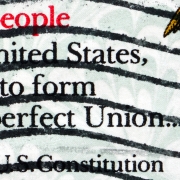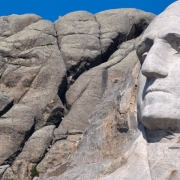For July 3 and 4, 2019, we are re-publishing two of our earlier posts on the subject of the American tradition of individualism.
In Part 1, we explored the Founding Fathers’ view of individual liberty and limited government. These concepts were important to the Founders because they believed that only a nation of individuals freely pursuing their own unique interests could achieve a prosperous future in the New World. But freedom itself wasn’t enough. The Founders believed that the virtues of individual responsibility and self-reliance were essential for societal well being. These are the cardinal virtues of the individualist.
In 1984, George Washington wrote in a letter that “a people… who are possessed of the spirit of commerce, who see and who will pursue their advantages may achieve almost anything.” Washington understood that the new nation’s ability to fulfill its potential was inextricably tied to a vibrant spirit of individualism. “Perseverance and spirit,” he wrote during the Revolutionary War, “have done wonders in all ages.”
The value that the Founders placed on self-reliance and entrepreneurship can be seen not only in their writings, but also in the way that they lived their lives. Benjamin Franklin — the original self-made man — famously rose from anonymity as a print shop apprentice to international fame as a leading figure in America’s founding. In his own autobiography, Franklin attributed his success chiefly to his own initiative. “Energy and persistence,” he wrote, “conquer all things.”
George Taylor also embodied the entrepreneurial spirit that animated the founding era. Taylor immigrated to the New World from Ireland without a penny to his name and took a job shoveling coal. Just a few years later, Taylor owned a large business and was eventually selected as Pennsylvania’s delegate to the second Continental Congress. He is remembered today as a signer of the Declaration of Independence.













